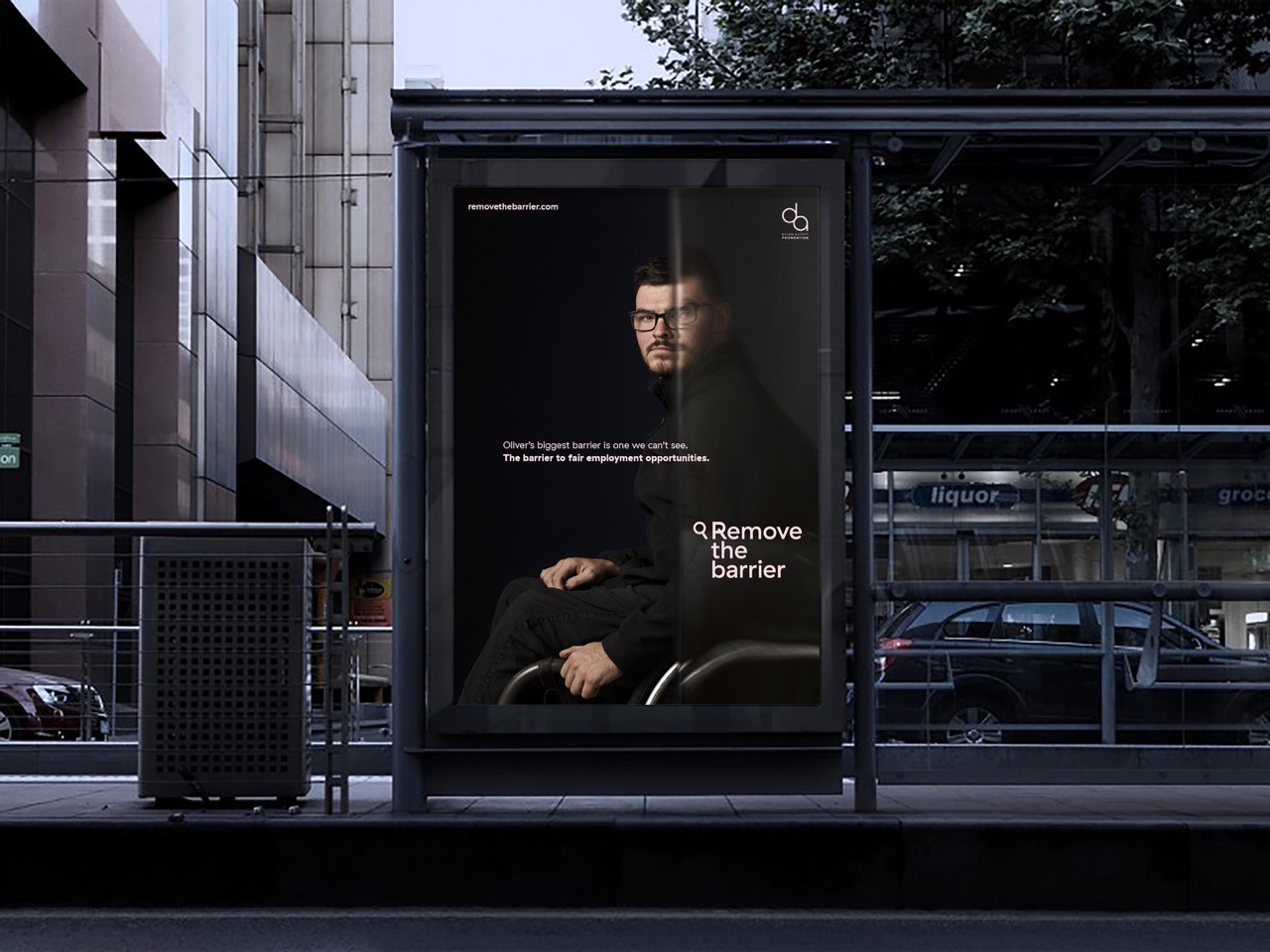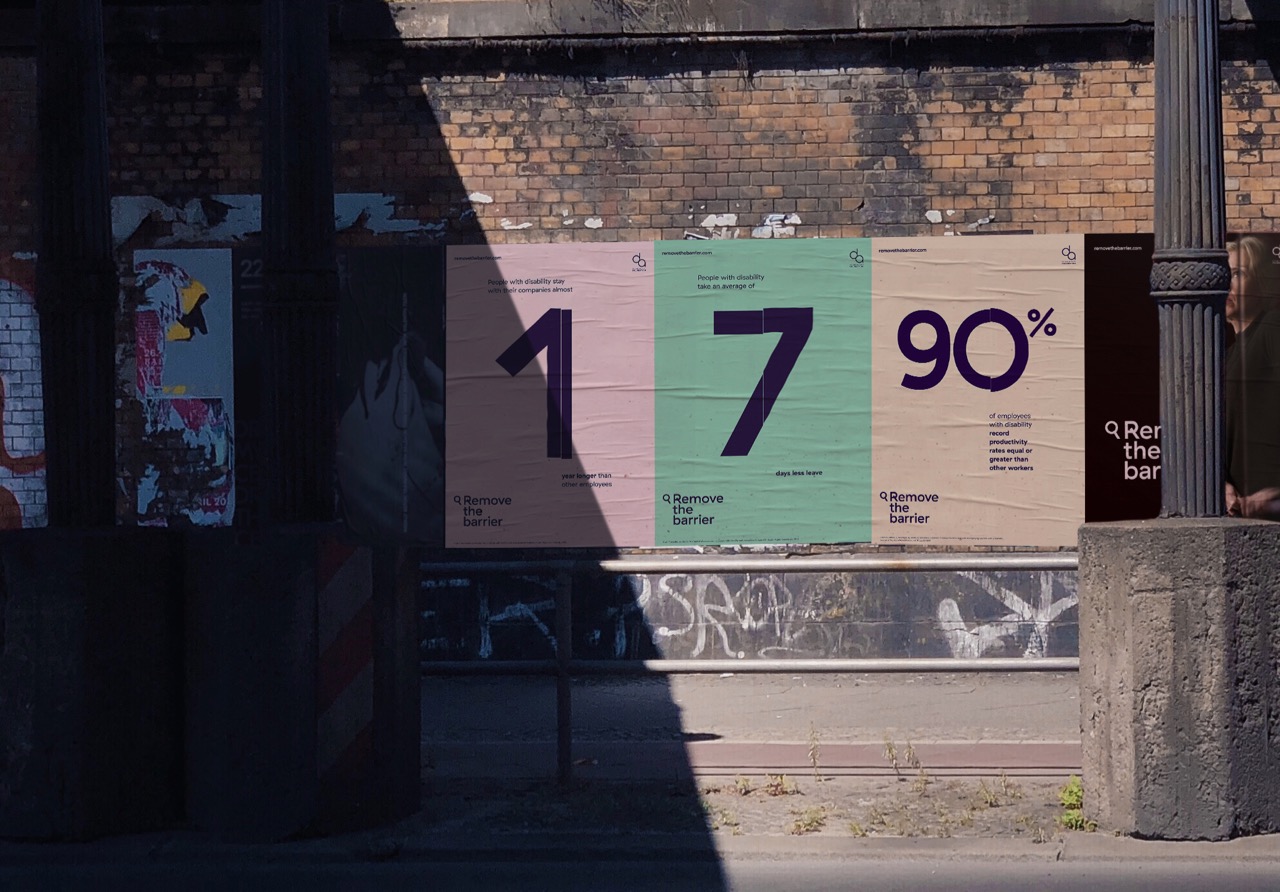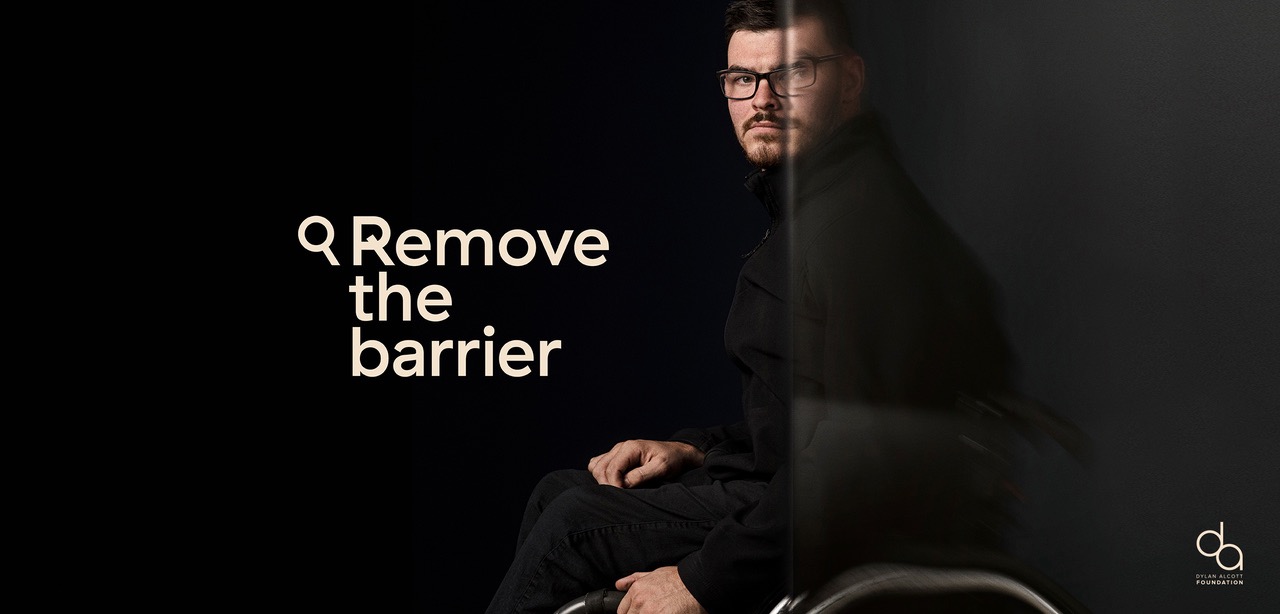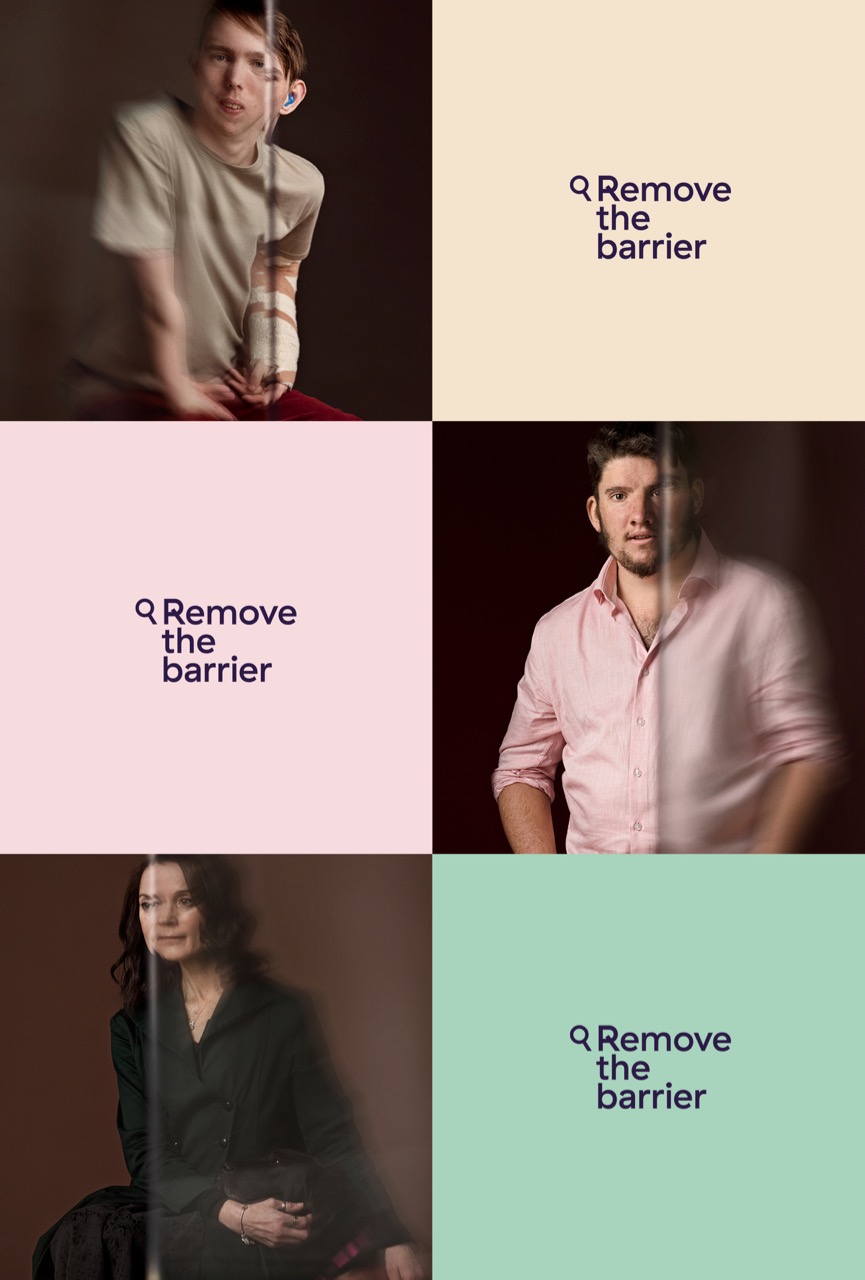Dylan Alcott Foundation aims to remove invisible barriers and help disabled unemployment in emotive campaign via BWM Dentsu, Melbourne
The Dylan Alcott Foundation via BWM Dentsu Melbourne and Dentsu Aegis Network (DAN) has launched Remove the Barrier, a new campaign asking Australians to remove the invisible barriers that prevent people with disability finding work.
Remove the barrier, addresses a problem facing one in five Australians, 4.3 million people, someone who is a person with a disability.
As Dylan Alcott explains, despite being willing and able workers, people with disability struggle to find jobs.
Says Alcott: “The unemployment rate for people with a disability is twice that of the general population and that’s shameful.
“The Dylan Alcott Foundation decided it was time to raise awareness of this issue and change perceptions of what employees with disability can achieve.”
The integrated campaign is led by an emotive film directed by Tom Campbell from Exit Films. Developed in collaboration with Glendyn Ivin, the film aims to highlight that people with disabilities spend their whole lives overcoming barriers, but there is one barrier which we can’t see, unconscious bias, that is often the biggest hurdle when trying to find employment.

One of the stars of the campaign is 24-year-old, university-educated, Oliver Hunter who uses a wheelchair and has encountered unconscious bias, lack of opportunities and accessibility issues in his hunt for fulfilling work.
Says Oliver: “I’d happily go into an interview and get knocked back for my lack of skills, but I’ve always felt that my disability has been the sole reason for employers turning me down.”
Says Phil van Bruchem, executive creative director, BWM Melbourne: “In a country that prides itself on giving people a fair go, it’s a shame that there’s an unconscious bias towards people with disabilities in the workforce. This campaign is the first step in raising awareness for this issue and for us to start removing these barriers for good.”

Supporting collaborators include 2019 Grammy Award nominee and APRA Music Songwriter of the year, Sarah Aarons, who produced the campaign backing track named ‘Invisible’. Born in Melbourne, Aarons is one of the country’s leading talents and a disability advocate after undergoing a recent amputation.
The campaign has already gained support from some of the country’s leading companies with Nike, ANZ, NEC, Medibank and QT Melbourne throwing their support behind its initiative.
The campaign features out of home, social and digital elements featuring portraits of real Australians with a disability who have experienced their own barriers to employment.
BWM Dentsu Melbourne, Haystac and Cox Inall Change worked in partnership with DAN agencies Isobar, dentsuX and Posterscope to bring the project to life.
Visit www.removethebarrier.com to find out how you can help.
Creative Agency: BWM Dentsu Melbourne
Chief Creative Officer: Rob Belgiovane
Associate ECD: Phil van Bruchem
Managing Director: Belinda Murray
Associate Creative Directors: Tim Smith and Giles Watson
Creative: Corey Thorn
Designer: Caitlin Moloney
Agency Executive Producer: Sonia Mclaverty
Agency Producer: Kirja Parcell
Agency Integrated Project Manager: Nadia Samat
Account Manager: Sylvia Jahn
Production Company: Exit
Director: Tom Campbell
Production Consultant: Glendyn Ivin
Production Consultant: Alice Grant
Executive Producer: Declan Cahill and Leah Churchill-Brown
Producer: Alexandra George
Cinematographer: Sam Chiplin
Art Director: Asia Swida
Post Production: The Editors
Editor: Grace Eyre
Post Producer: Charlotte Griffiths
Music: Sarah Aarons
Photography: Josh Robenstone
Producer: Chris Hemmings
Retouching: Ross Goddard
PR: Cox Inall Change and Haystac
General Manager – Justine Sywak
Senior Account Manager – Molly Bruce
Senior Account Manager – Charlotte Jover
Senior Account Executive – Lauren Everett
Senior Account Executive – Emma Schwarer
Client: Dylan Alcott Foundation
Founder: Dylan Alcott
Board Member: Zack Alcott
General Manager: Georgie Saggers
Marketing & Partnership Advisor: Spencer Ratliff
Creative Collaborators: Oli Stratford, Ashley Jamieson, Zander Fraillon, Alexandra Sayers



12 Comments
The greatest barrier for disabled people—like my sister—in getting a job, is the minimum wage law. Until then, it is illegal for employers to hire people for their market value. A market value, my sister is willing to work for.
You’re not seriously suggesting people with disabilities are of less value in the work place, lesser than minimum wage?
Sorry, how do you mean market value? As in less than min wage?
The implication that most disabled people deserve to earn less than minimum wage is pretty horrendous, you should be pretty ashamed of that comment.
Nice. Lovely film. Good looking campaign.
Seen Dylan everywhere. He’s a PR machine…
Lovely piece of work, beautiful and thought provoking.
Beautiful work with a great message. I hope it shifts attitudes towards employing people with disabilities.
Nice AD GW
What I mean by market value, is the price an employer is willing to pay an employee, and the price an employee is willing to accept from an employer, to perform a certain task. My sister likes cooking and cleaning—serving others—she’d loved to work in the hospitality industry, maybe a cafe, bakery, etc. However, my sister’s market value—even though she is a talented cook—might be $5 an hour (maybe less), as she has language difficulties, she takes longer to learn new things, she makes more mistakes, she’ll require more supervision, etc. If an employer wants to legally hire her, she’ll have to be paid the minimum hospitality award wage, which let’s say is $20 an hour, but her market value is not $20 an hour for the above reasons. This doesn’t result in my sister getting employed for $20 an hour, it results in my sister remaining unemployed; continuing to stay at home, putting undue pressure on the welfare system and my ageing parents. So although well-meaning people such as @Whaaa???? and @Also @Milton have the best of intentions, their beliefs result in my sister not being able to gain a sense of purpose or dignity that comes from having a job, along with its social and communal interaction. This is true not just for disabled people, but for every unskilled or disadvantaged person (there’s a reason why the youth unemployment rate is as high as it is). If my sister got a job at a bakery tomorrow for $5 an hour, her life would completely change, I can see her face lighting up now. But people such as @Whaaa???? and @Also @Milton (along special interest groups unbeknownst to them; namely trade unions) won’t allow that. But this is not the greatest issue facing disabled people. The greatest issue facing disabled people is the genocidal murder rate that they’re are subjected to.
@Milton that is an atrocious thing to say. Are you suggesting that people should be actively discriminated against and paid less because they’re disabled?
And you clearly didn’t click through to the campaign website: “90% of employees with disability record productivity rates equal or greater than other workers”
Hey Milton,
Thanks for hijacking this thread and displaying the bias that this very campaign is trying to break down, quite ironic really.
I hope for your sisters sake employers don’t write her off before giving her the chance to show her worth, which I’m sure is well above “market value”.
It is an important issue that is both complex and fraught with missteps.
Rather than shouting Milton down, perhaps we should try listening first.